Studio Visit
Iranian Painter Shirazeh Houshiary Explains the Benefits of Painting on the Floor, and Why Nothing Is More Abstract Than Nature
We caught up with the artist at her West London studio.
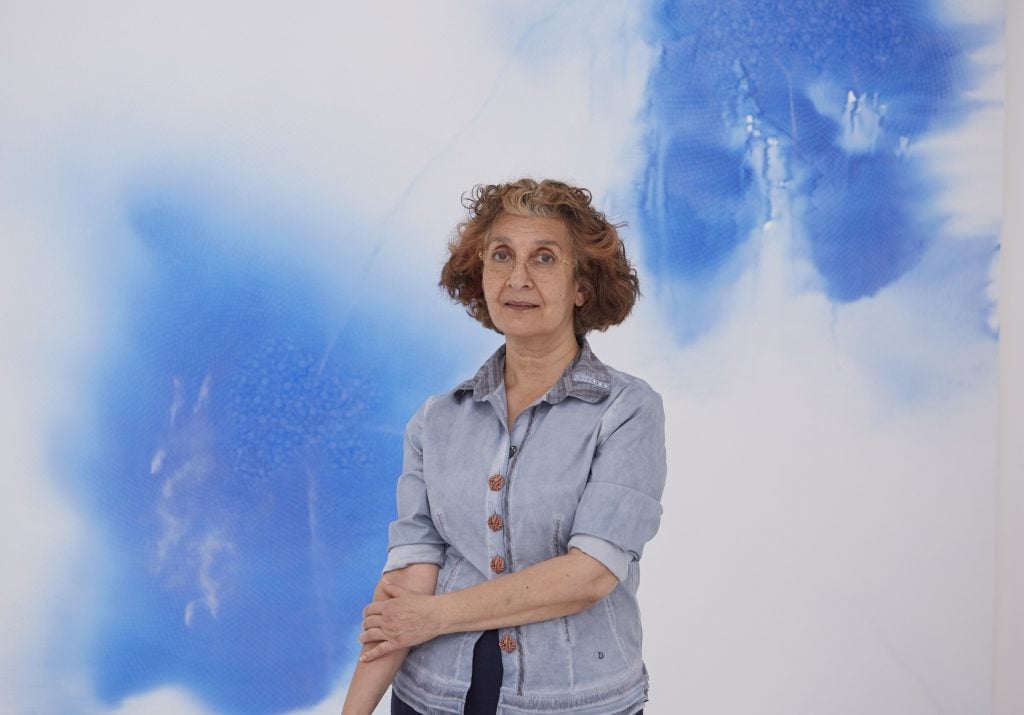
We caught up with the artist at her West London studio.

Naomi Rea

For Shirazeh Houshiary, being close with nature is key. Even her West London studio is located right by the woods so she can listen to birds and keep in tune with nature’s ebbs and flows.
Houshiary moved to London in 1973, leaving her native Iran to study art. Her installations, paintings, and sculptures often take inspiration from Eastern culture, poetry, and mythology.
Her profile rose alongside some of the U.K.’s most prominent sculptors—such as Anish Kapoor, Tony Cragg, and Richard Deacon—in the 1980s, and she was nominated for the Turner Prize in 1994.
To create the five works in her latest solo exhibition, “Pneuma,” now on view at Lisson Gallery in London, she placed her supports flat on the floor and poured water mixed with pure pigment onto canvas, before meditatively layering inscriptions on top of the forms.
We spoke to the artist about connecting with nature, the joys of ambiguity, and what taking long walks along the river can do for her practice.
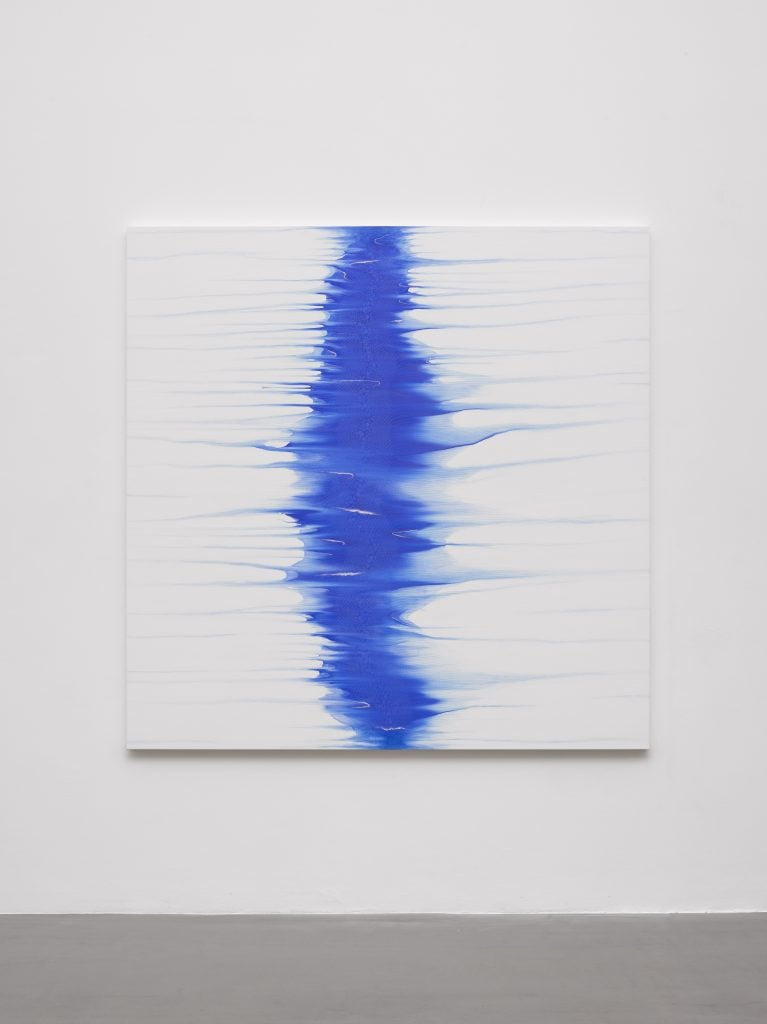
Shirazeh Houshiary , Pneuma (2020). ©Shirazeh Houshiary, courtesy Lisson Gallery.
What are the most indispensable items in your studio and why?
My books are very important and they are scattered on the floor of my studio. I am always dipping in and out of them throughout the day.
What is the studio task on your agenda tomorrow that you are most looking forward to?
I work for long periods of time on the painting on the floor of my studio. Tomorrow is an exciting time, as I will place the work on the wall for the first time. After a long period of focused observation, my gaze will be unfocussed tomorrow and looking at it in its totality.
What kind of atmosphere do you prefer when you work? Do you listen to music or podcasts, or do you prefer silence? Why?
Sometimes I listen to music but recently it is the birdsong outside of my studio that has captivated me. There are a lot of trees around my studio and many bird species visit during the day, especially in spring. I found connecting to nature is important, as it always reminds me of my place within it.
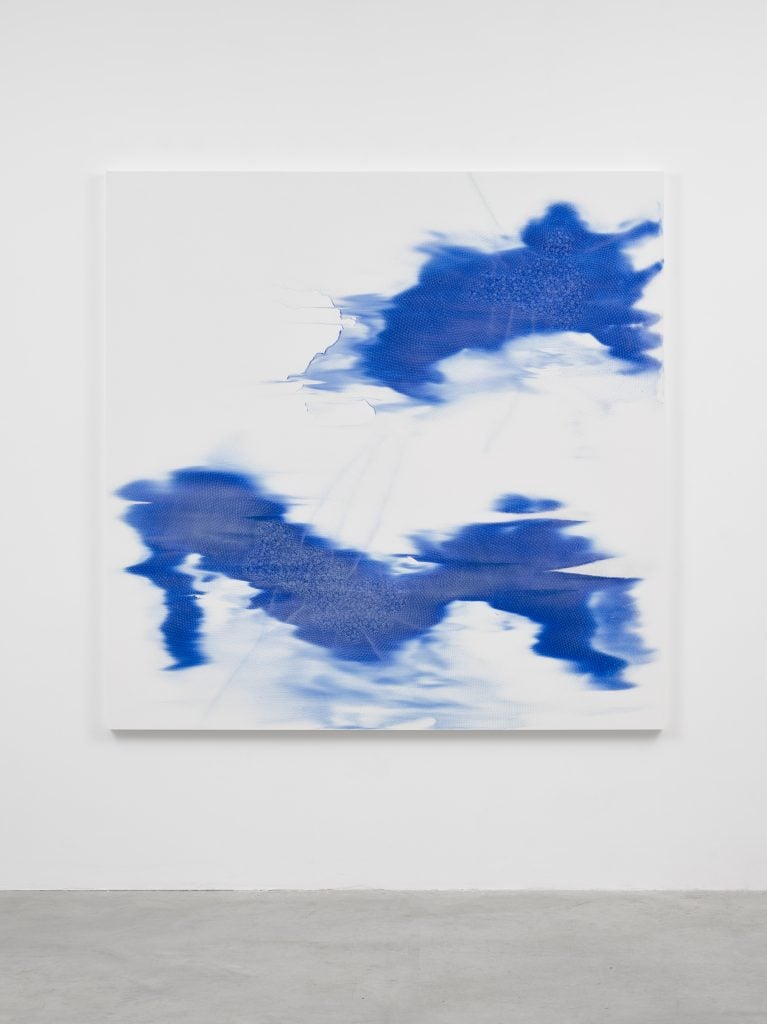
Shirazeh Houshiary , Pieta (2021). ©Shirazeh Houshiary, courtesy Lisson Gallery.
What trait do you most admire in a work of art? What trait do you most despise?
I admire ambiguity and despise literalness.
What snack food could your studio not function without?
I love vegan chocolate and always keep a box in the fridge.
Who are your favorite artists, curators, or other thinkers to follow on social media right now?
At the moment I am reading writers such as Stuart Kauffman (A World beyond Physics) and Fritjof Capra (The Web of Life) to expand my understanding of the world.
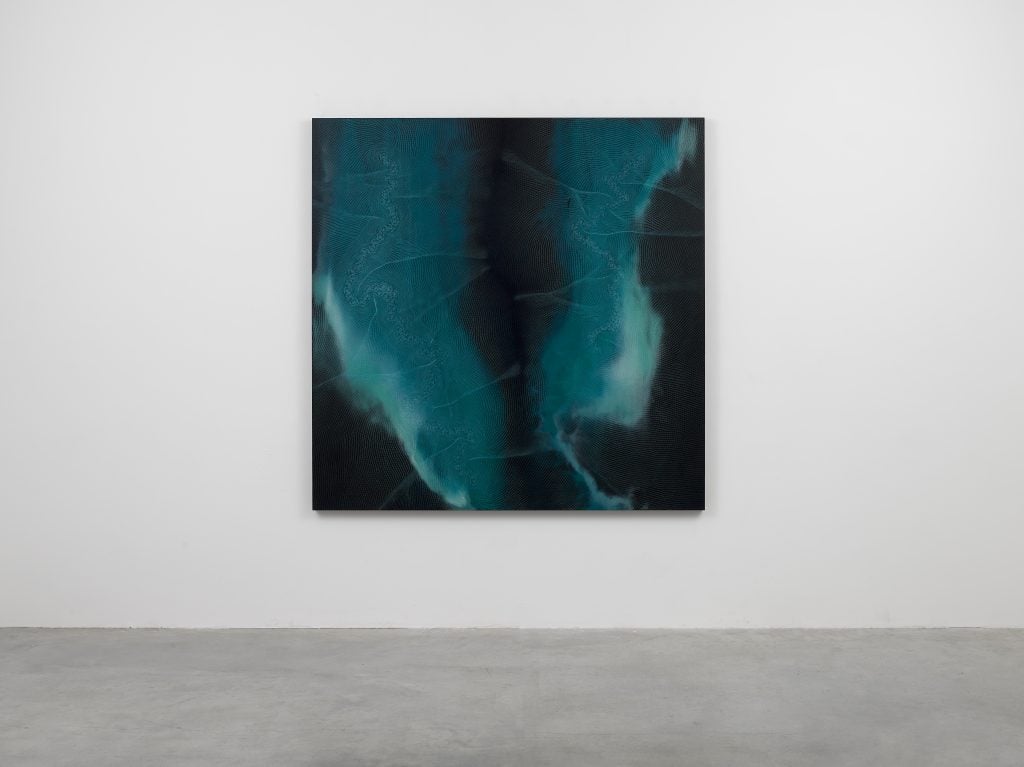
Shirazeh Houshiary , Enigma (2020). ©Shirazeh Houshiary, courtesy Lisson Gallery.
When you feel stuck in the studio, what do you do to get un-stuck?
I go for a long walk along the river and contemplate the reflected light.
What is the last exhibition you saw (virtual or otherwise) that made an impression on you?
I made a virtual tour of abstraction and calligraphy at Louvre Abu Dhabi and found the relationship between words and marks and images both fascinating and inspiring. It reminded me of the first marks made by homo sapiens in Africa 100,000 years ago.
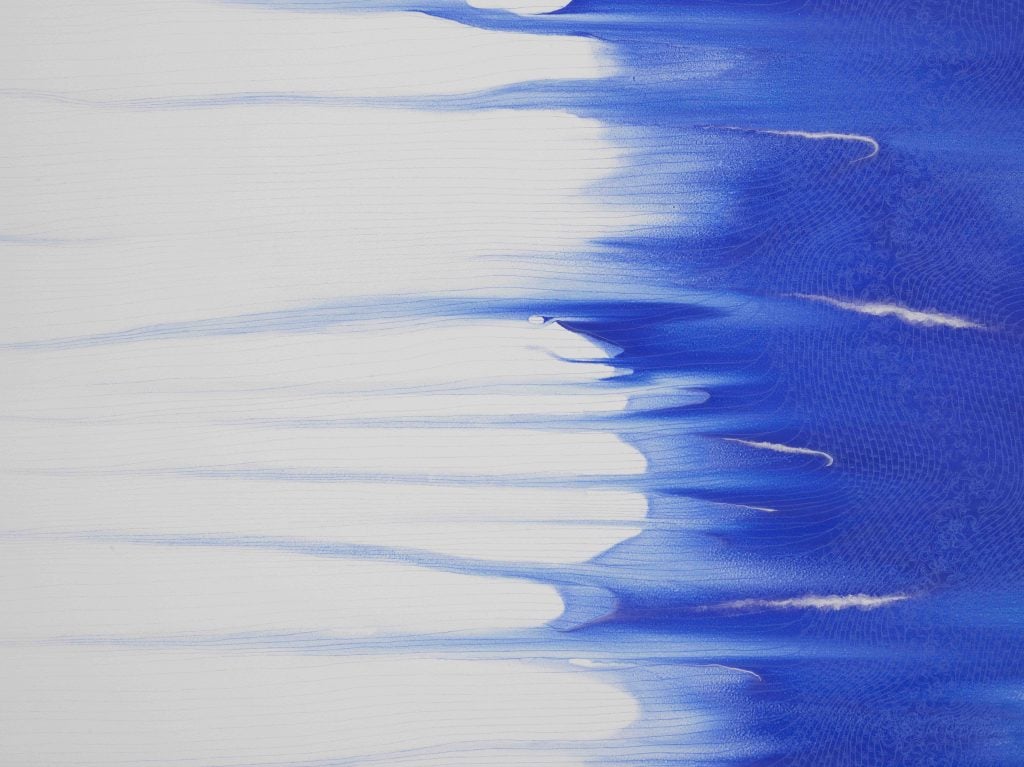
Shirazeh Houshiary , Pneuma (2020). ©Shirazeh Houshiary, courtesy Lisson Gallery.
If you had to put together a mood board, what would be on it right now?
The pandemic has made a huge impact on our lives with much of the year in lockdown, and my priorities have shifted. My mood board is the large studio window with the same dimensions as my paintings. To look out to the woods and the wildlife beyond, I realize that nothing is more abstract than nature.
“Shirazeh Houshiary: Pneuma” is on view at Lisson Gallery, Cork Street, London, through July 31.